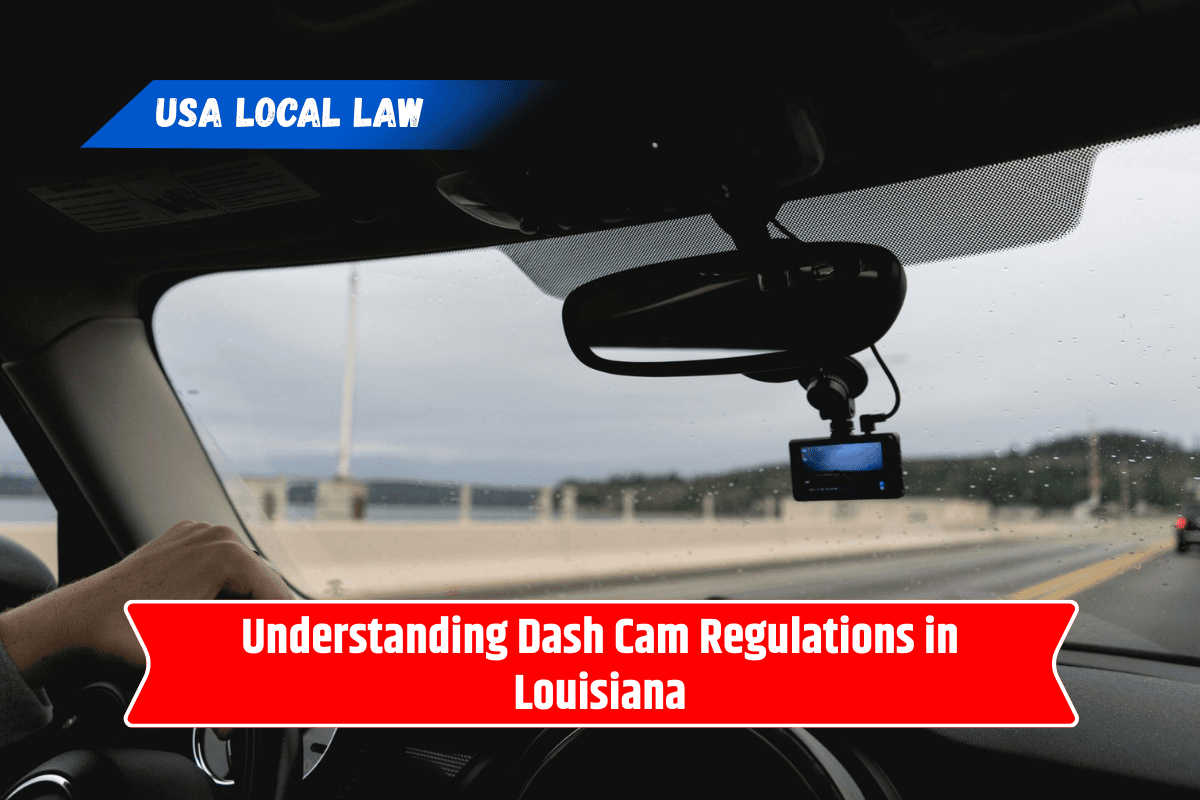Dash cams have become a popular tool for drivers across the U.S., including Louisiana. Whether you’re using them for safety, recording accidents, or monitoring teenage drivers, it’s important to know the rules around dash cams in your state. Louisiana has specific laws that drivers must follow to avoid fines or legal issues.
In this article, we’ll break down everything you need to know about dash cam regulations in Louisiana in simple, easy-to-understand language.
Are Dash Cams Legal in Louisiana?
Yes, dash cams are legal in Louisiana. You can install and use a dash cam in your car to record footage while driving. However, there are certain rules about where you can place them and what you can record. If you don’t follow these rules, you might end up with a ticket — or worse, have your video footage thrown out in court.
Where Can You Mount a Dash Cam in Louisiana?
Louisiana law says that you cannot block your view of the road with any device, including a dash cam. This means you can’t stick it right in the middle of your windshield.
Here’s where you can legally place your dash cam:
Behind the rearview mirror
On the dashboard (as long as it doesn’t block your view)
In the lower corners of the windshield
Just make sure it doesn’t interfere with your line of sight. The goal is to record safely without affecting how you drive.
Is It Legal to Record Audio with a Dash Cam in Louisiana?
Louisiana is a one-party consent state. That means you’re allowed to record conversations as long as one person involved in the conversation agrees to it — and that person can be you.
So, if you’re in your car and recording both video and audio, it’s legal if you’re part of the conversation. But if you’re recording passengers or others without being part of the chat, things can get legally tricky.
Always let people know you’re recording if you’re giving rides or using your car for business (like Uber or Lyft) to avoid privacy concerns.
Can Dash Cam Footage Be Used in Court in Louisiana?
Yes, dash cam footage can be used as evidence in Louisiana courts. It can help prove what really happened in a car accident, traffic stop, or even theft cases.
But keep in mind:
The video must be clear and not edited
It should be legally recorded (no blocked view or illegal placement)
Audio must follow consent laws
Good-quality, lawfully recorded dash cam footage can be a powerful tool in insurance claims and legal cases.
What About Rear-Facing Dash Cams?
Rear-facing dash cams or dual dash cams (that record inside the car as well) are also legal in Louisiana. These are often used in ride-sharing services and by parents monitoring teenage drivers.
Just remember:
You should inform passengers they are being recorded
Avoid installing cameras that distract you while driving
Respect for privacy is key — even if the law allows recording, it’s better to be open about it.
Tips for Using a Dash Cam Legally in Louisiana
Here are some quick tips to stay within the law:
Mount your dash cam in a legal, non-obstructive location
Use a model with a wide-angle lens for better coverage
Check that audio recording follows one-party consent laws
Keep footage safe and backed up in case you need it later
Inform passengers that recording is taking place, especially for business use
Using a dash cam in Louisiana is completely legal, but it must be used correctly. Placing your camera in the wrong spot or recording audio without proper consent can land you in legal trouble.
By following Louisiana’s dash cam rules, you can protect yourself on the road, avoid unnecessary fines, and even help in case of an accident. Stay informed, drive safe, and let your dash cam work for you — the right way.
